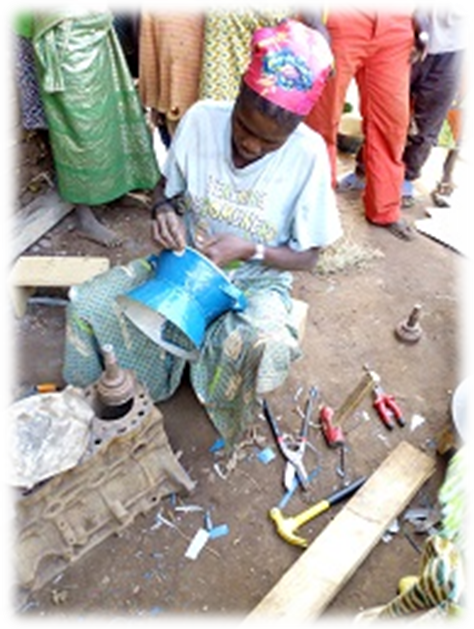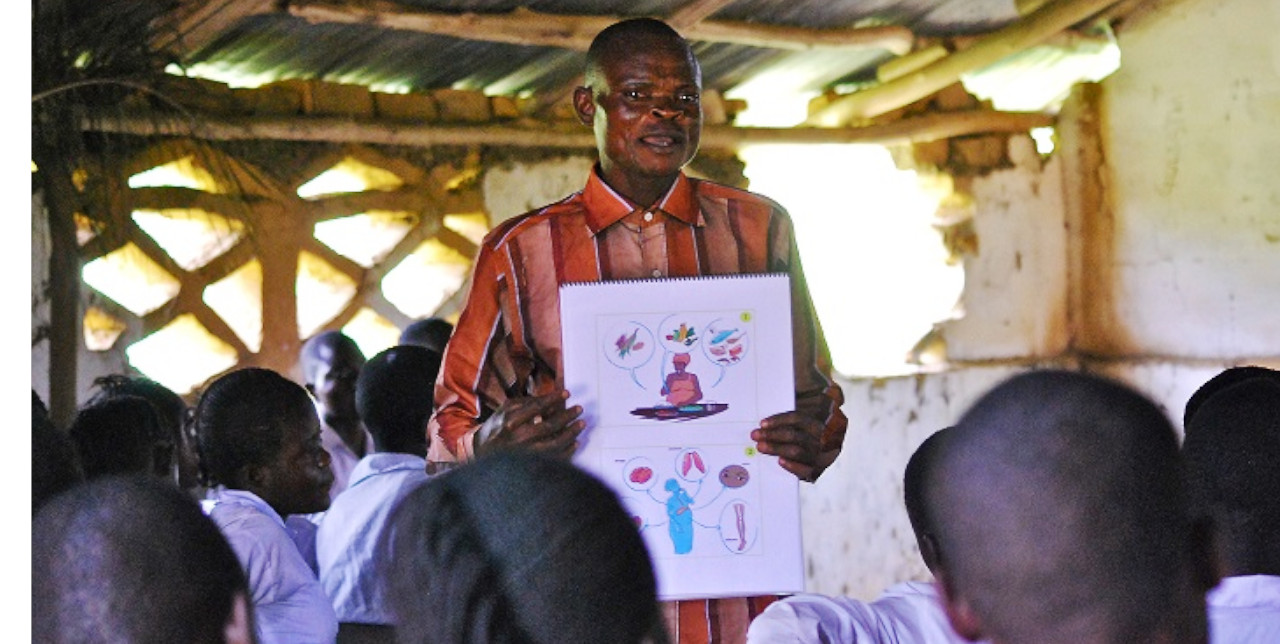16-04-2019 | di COOPI
Ituri, DRC: more independent mothers = less malnourished children
Poor hygiene, inadequate food practices and limited access to care are among the main causes of child malnutrition in the Ituri province, in the north-east of the Democratic Republic of Congo.
With the support of the Humanitarian Fund, we have carried out an "Emergency multisectoral response in nutrition, health and protection to populations affected by the humanitarian crisis in Djugu territory, Ituri province" – our project made it possible to treat 1,746 cases of acute malnutrition so far.
To improve children's recovery, we have focused on the prevention and treatment of the most serious cases at the Intensive therapeutic nutrition unit (UNTI) and the Intensive outpatient nutrition unit (UNTA). Treatment and transport fees for patients and their families were fully covered, as well as the cost of medicines and any additional medical examinations.
Moreover, we aimed to train mothers on feeding practices to strengthen their economic empowerment. At the medical centres, the accompanying mothers were trained on how to measure the child's brachial perimeter and on how to apply cooking practices and food diversification, by adopting the "Learning by doing" approach. After leaving the unit, mothers were provided with a "shakir" tape and a hygiene kit, so that it could be easier for them to monitor their children nutritional status.
Promoting the socio-economic reintegration of mothers was one of our core activities, aimed to offer alternative solutions to the causes of malnutrition - 35 women have benefited from this initiative: three of them have participated in the construction of ovens using local raw materials, while the remaining 32 have dedicated themselves to small businesses.

A former accompanying mother accompanying at the UNTI Rethy in a training session on how to make an oven
Ensuring the economic independence of mothers and investing in income-generating activities are some of the first steps towards personal and social emancipation, thus protecting them from psychological, sexual or economic violence.
At the end of their training, mothers received cash transfers for $30 (USD), which were used to start small businesses – this would let them be able to pay for the medical treatment of their malnourished children.
Photo credits (main image): Giovanni Porzio




 Dem. Rep. of Congo
Dem. Rep. of Congo